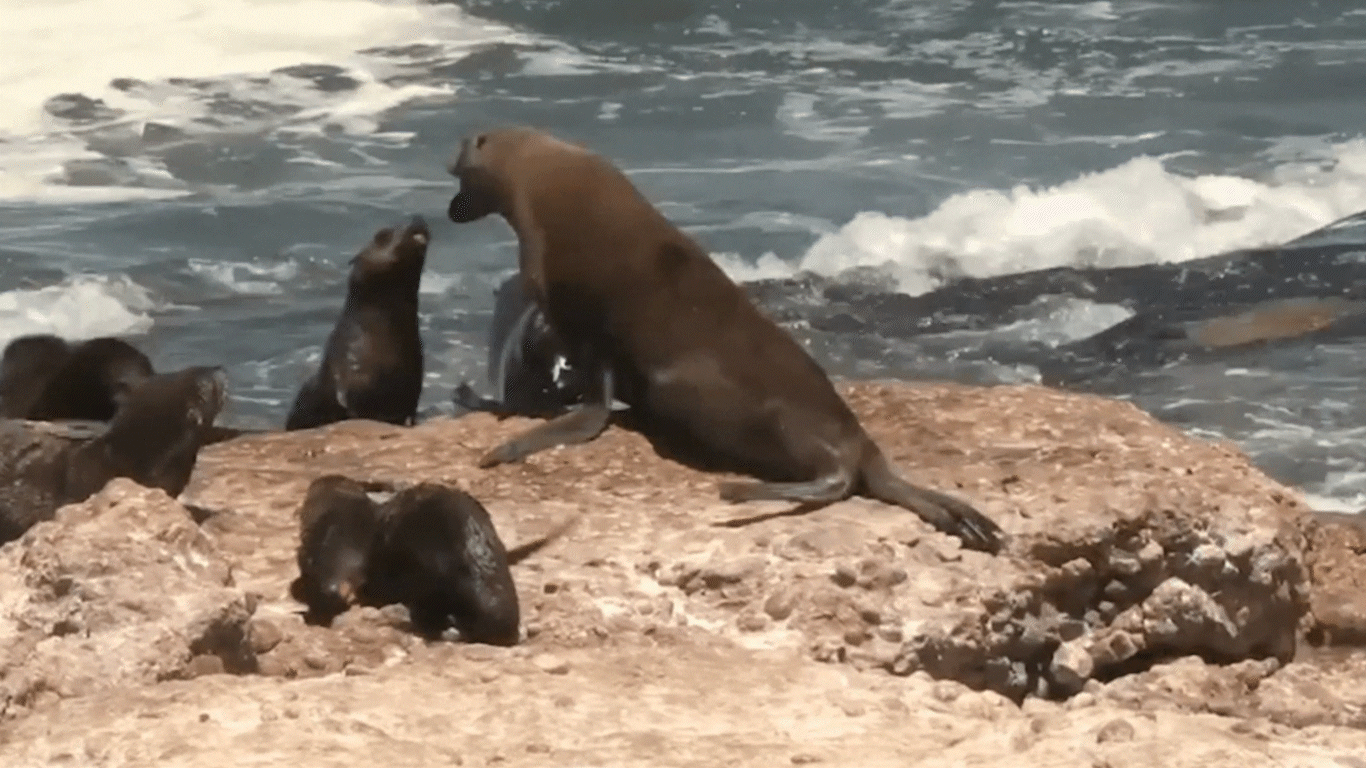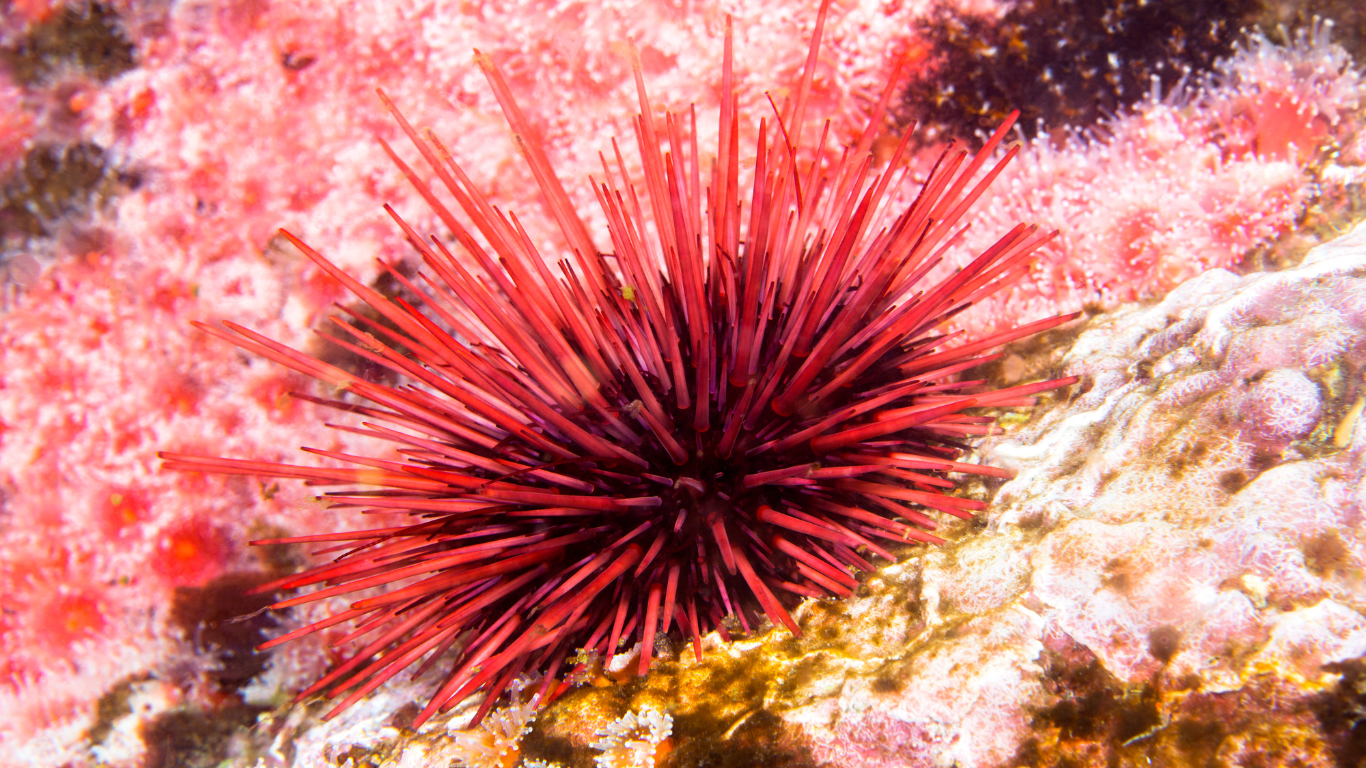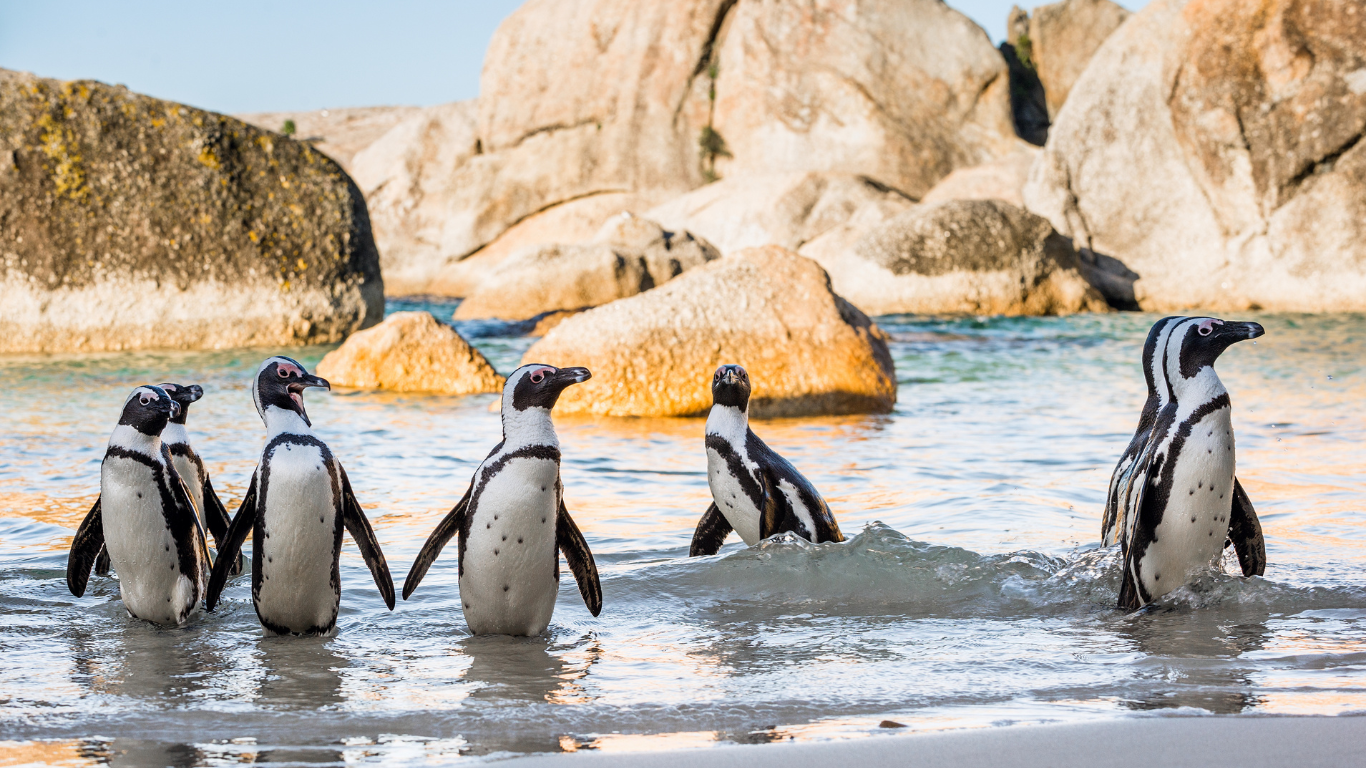For the first time ever, rabies is spreading through the Cape fur seal population in South Africa, sparking fears of a far-reaching marine pandemic.
Cape fur seal rabies outbreak a worrying world first – with possible far-reaching consequences for seals and other marine mammals, like dolphins and whales.
This is only the second time that rabies has been recorded in seals, the first being a single case in Norway in 1980. In infected animals, the virus causes heightened aggression, disorientation and, within 10 to 14 days, death. There is no cure.
“What is unfolding along the South African coastline is unprecedented,” says Debby Querido, program director of Animal Survival International (ASI). “There is potential for this outbreak to develop into a large-scale cross-species pandemic. I’m worried we are underestimating the danger this poses to our marine ecosystems and the animals that call them home,” she said.
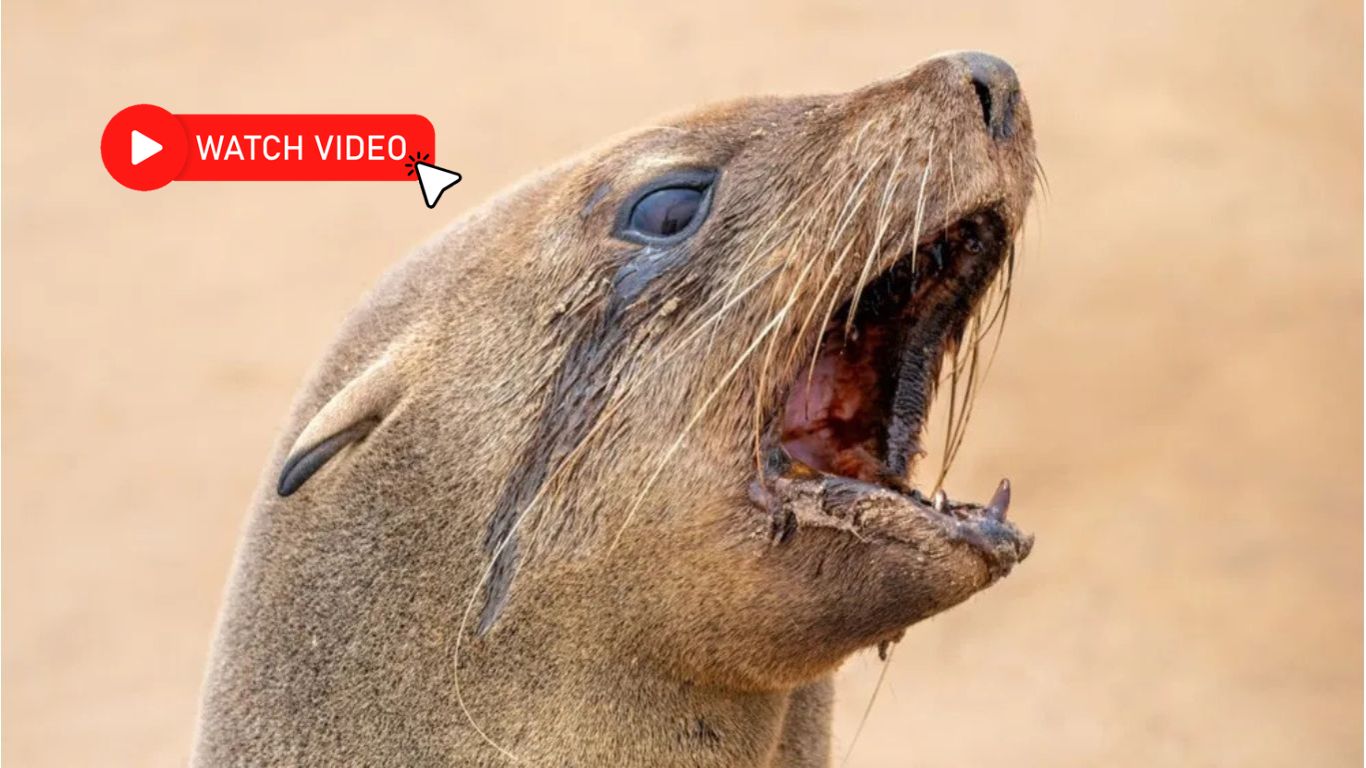
It is suspected that the seals were infected by black-backed jackals, which prey on seal pups. Regardless of its origin, the virus could spread rapidly throughout local marine mammal populations squeezed into the few natural spaces left untouched by human expansion – especially if it is able to jump species.
In the final stages of infection, the rabies virus essentially ‘commands’ the animal to bite, transmitting the virus through saliva. Infected Cape fur seals have been observed attacking each other, as well as people and pets.
It is unknown if the seals are attacking other marine mammals in the open ocean, but this cannot – and should not – be ruled out.
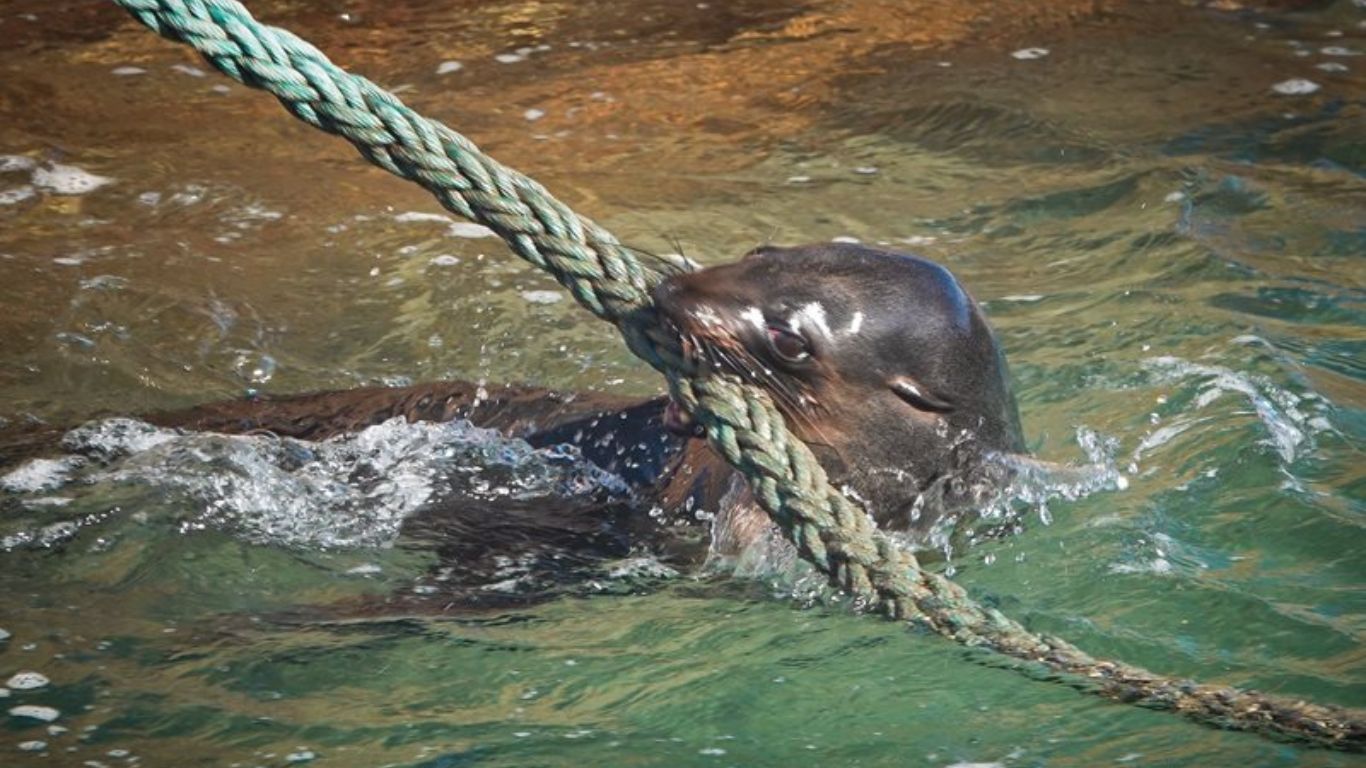
There are around two million Cape fur seals living in coastal colonies stretching 1,864 miles (3,000km) from the tip of South Africa through Namibia and into Angola. If the infection keeps spreading, the consequences could be dire.
“While the outbreak is devastating for local seal populations, the fear is that the virus could once again jump species, possibly infecting other marine mammals such as orcas, dolphins and even whales,” says ASI campaigner and researcher Savannah Anderson. “The more species are infected, the wider the outbreak could reach. Orcas, for example, could carry the virus long distances and infect marine mammals off the shores of Australia, the Americas and beyond.”
Urgent action from the scientific and animal welfare communities
South Africa’s scientific and animal welfare communities are working to understand and control the outbreak. There is no way to determine if a live animal has rabies – the only way to be 100% certain is to sample a section of its brain – but experts are quickly learning to identify infected animals based on clinic signs.
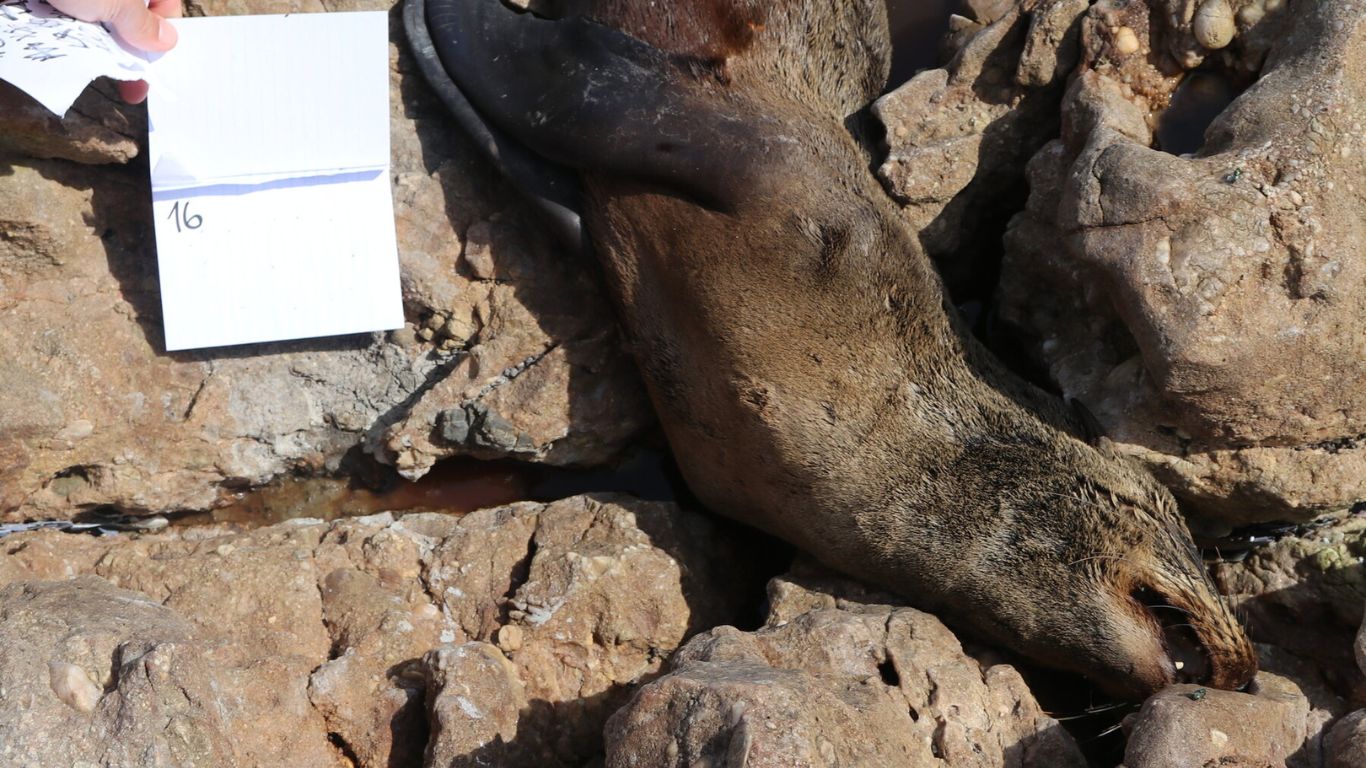
SeaSearch, a marine-focused NGO in South Africa, is monitoring colonies, performing autopsies on infected individuals, and tracking new cohorts of pups for potential in-utero transmission.
“These are highly gregarious, very social animals,” says Dr Tess Gridley, Founding Director and Principal Scientist of SeaSearch, “and we can see this real uptick in aggressive behaviors and rabies, and it’s really quiet concerning.”
“We need to stop it at the colonies before it comes more to the coast,” she added.
Cape Town’s Two Oceans Aquarium is conducting a novel vaccination trial on cape fur seals in areas where contact with people is most likely, such as harbors and beaches. Vaccination trials are also underway for itinerant (wandering) seal species, such as elephant and leopard seals, to prevent the spread to other colonies and species.
How can you avoid infection, and what can you do if you suspect you may have contracted rabies?
Experts have cautioned the public to be wary of seals in areas where humans may interact with them, including when swimming, surfing or paddling in the oceans of South Africa, Namibia and southern Angola. Infected seals can be incredibly aggressive and may attack people and pets without provocation.
Anyone who may come into contact with seals should get a rabies vaccination and should vaccinate their pets, especially dogs that walk on beaches.
If you are bitten by a seal or another animal you suspect may have rabies, wash the bite area with soap and water, and head straight to the nearest hospital for emergency treatment. You should also contact local animal welfare authorities so they can prevent the animal from attacking and possibly infecting other people, pets or animals.
It is also important to leave the management of this outbreak to scientists and animal welfare experts. Do not attempt to attack or cull seals yourself, as this could cause intense suffering for the animals. If you come across a seal you think is infected with rabies, keep your distance and inform local authorities as soon as possible.
Banner credit: Sea Search Research & Conservation

